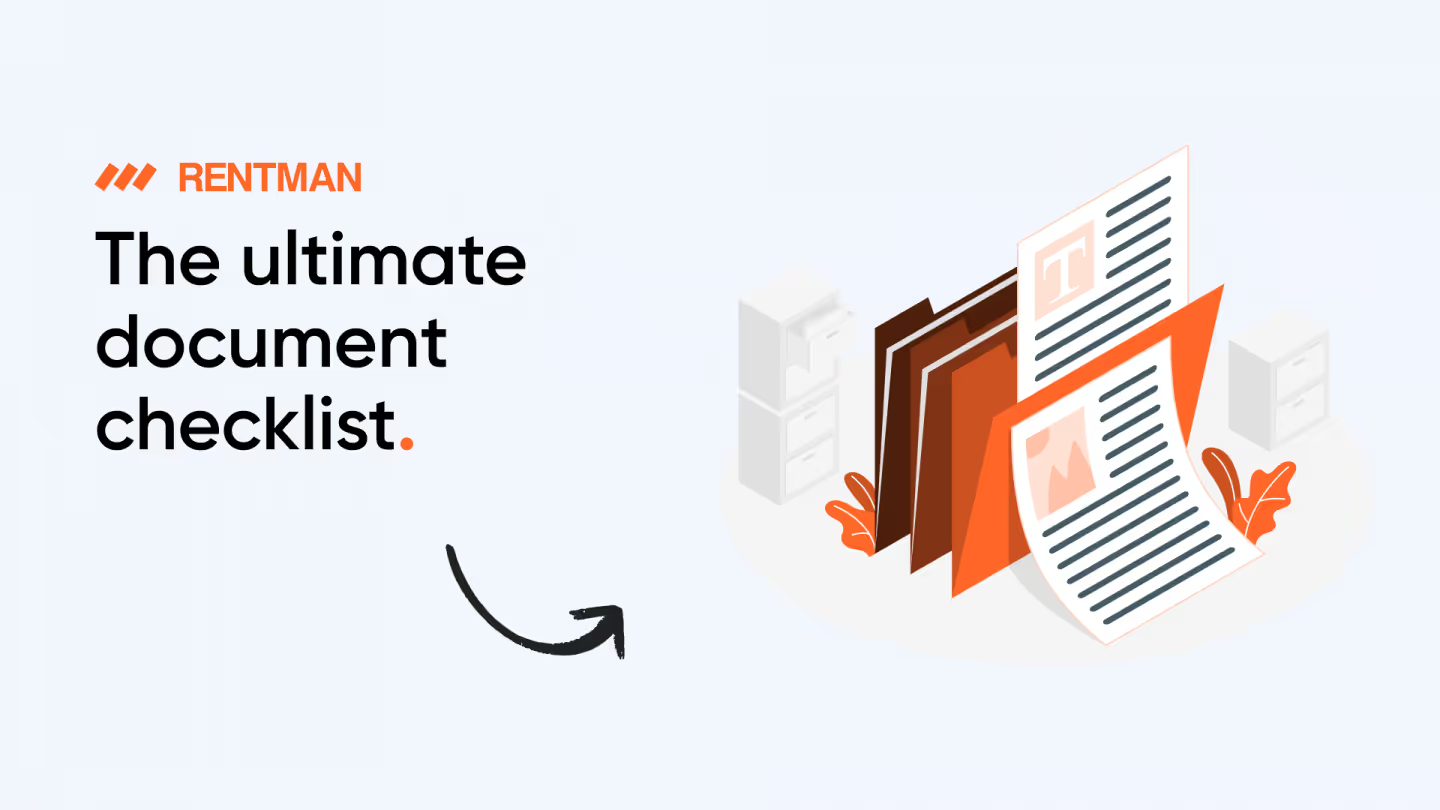What you need to know about sales tax regulations on rental equipment in different states

Let’s talk about taxes. Because one of the most common questions company owners have when expanding to the United States is: “Do I need to charge sales tax on my rental equipment?”
Every state has different regulations, so it can leave you clueless as to what you need to do. But failing to meet tax requirements and filing can have serious consequences and result in hefty fines. So it’s good to be informed from the beginning.
And handling sales tax doesn’t have to be an additional burden. This blog will provide you with a general overview of factors to keep in mind when launching your equipment rental business in the United States. And states with notable differences when it comes to sales tax regulations.
Here’s what we’ll cover:
1. Is rental equipment taxable?
2. How often to file sales taxes
3. Factors that impact the amount of sales tax
4. Sales tax laws in different states
Do I need to pay sales tax on rental equipment?
The short answer is yes, you do have to pay sales tax on rental equipment.
Even though renting equipment isn’t the same as buying it, most rentals are subject to sales tax, just like any other goods and services. States sales taxes range from 2.9% to 7.25% and there can be additional sales tax imposed by local governments that varies from 1 to 5 percent.
The challenge is figuring out how much to charge your clients given the varying tax rates across states, cities, and counties.
How often do I need to file sales tax?
How often your company needs to file sales taxes depends on the state and the amount you owe. This can vary between monthly, quarterly, and annual filings. Check the website of the state you want to operate in to find out specific regulations.
It’s worth noting that some states offer tax deductions if payments are submitted early, an easy way to cut costs if the opportunity presents itself. However, there are penalties and fines if you submit and pay your sales tax late.
Factors that impact how much sales tax you need to pay on rental equipment
Figuring out sales tax on rental equipment in different states can be problematic due to variations in state laws. So here are some general guidelines to keep in mind:
- Length of the rental period: In most states, rentals that are three years or less in duration are subject to sales tax. So if you’re renting out a piece of equipment for one or a handful of events, you most likely have to pay sales tax.
- Renting equipment with an operator or not: Some states do not impose sales tax on the rental of equipment if you rent it out with an operator. So if you need a crew member to operate some pieces of gear, you may be exempt.
- Location of the rental: Whenever you rent out equipment to a person or company in another state, you will need to pay sales tax in that state too.
For example: If your stock is in a warehouse in New York but a customer from New Jersey wants to rent your equipment, you will have a sales tax collection responsibility there too. Therefore, you need to decide if you want your equipment to stay in the state or be rented by out-of-state customers too.
- The type of equipment you’re renting: If you’re renting out vehicles and other types of heavy-duty machinery, these often fall under different tax schemes. In many states, these items face specific taxes called excise taxes which is an additional surcharge you’d have to pay on top of sales tax.
- Taxable vs non-taxable types of rentals: In some states, certain types of rentals may be exempt from sales tax. For example, rentals to non-profit organizations or government organizations.
- Taxability of services associated with the rental process: Again, some states may require sales tax to be charged on fees associated with rental equipment, such as delivery or pickup fees. Therefore, if you offer equipment rental delivery as an add-on service, research whether this can be taxed in your state of operation.
As you can see, these are not blanket rules. Therefore, it’s good to dig deeper depending on the state you will operate your equipment rental business from.
And as you grow your business in the US, keep detailed records of all rental transactions, including the amount of sales tax collected and paid to each state. This allows you to justify your choices and prove accurate payments.
Sales tax laws in different states
So where you are based and renting out your equipment will dictate how much sales tax your company needs to pay. So here’s a quick rundown of a few states with notable differences when it comes to their sales tax laws.

Sales tax laws for equipment rentals in California
California has one of the highest base sales tax rates in the United States at 7.25%.
And along with a high sales tax, California also has a “use” tax which applies in certain situations.
California’s use tax is an additional tax that you may need to pay on certain items that you purchased from out-of-state vendors and intend to use, store, or consume in California. This only applies if you didn't pay sales tax at the time of purchase. For example, if you buy a piece of equipment from a vendor located in another state, and use it in California, you might owe a use tax on that piece of equipment.
Sales tax laws for equipment rentals in Colorado
If you’re renting out an item for less than three years, the state of Colorado will typically not charge sales tax. It considers the company renting out the item as the end-user.
Therefore, if you are renting out equipment for only one event, no sales tax is due on the rental payments.
Sales tax laws for equipment rentals in Florida
Florida has a 6% sales tax rate and an additional discretionary sales surtax due on the total price charged for renting. This discretionary tax is imposed by individual counties in Florida so rates may vary.
Sales tax laws for equipment rentals in Texas
Texas has a motor vehicle rental tax, which applies to rentals of heavy construction machinery and other types of vehicles, as well as to passenger car rentals. But these vehicle rentals are exempt from general sales tax
Sales tax laws for equipment rentals in Washington
Washington state has both a regular sales tax and the Business and Occupation tax which equipment rental companies need to be aware of.
The Business and Occupation tax is paid by companies based on the money they earn from their business operations. The rate for this is 1.5% to 1.75%.
Additionally, only three states do not impose a sales tax on equipment rentals if it comes with an operator. These are:
- Indiana
- Michigan
- Washington
Lastly, with so many states and various sales tax laws, it’s also worth knowing which states do not have sales tax. The 5 states are:
- Alaska
- Delaware
- Montana
- New Hampshire
- Oregon
The bottom line
Being informed about the sales tax requirements is crucial to avoid fines and penalties down the line. From sales taxes to exemptions to specific requirements, all of this information will help you decide where to base yourself and streamline your operations.
If you use Rentman and want to know more about how to file taxes in the US, check out this resource, which walks you through how to set up different tax schemes.
Photo by Nataliya Vaitkevich.
Frequently asked questions
Previous blog posts

The Ultimate Document Checklist for your Equipment Rental Business + Free Templates
The Ultimate Document Checklist for your Equipment Rental Business + Free Templates


